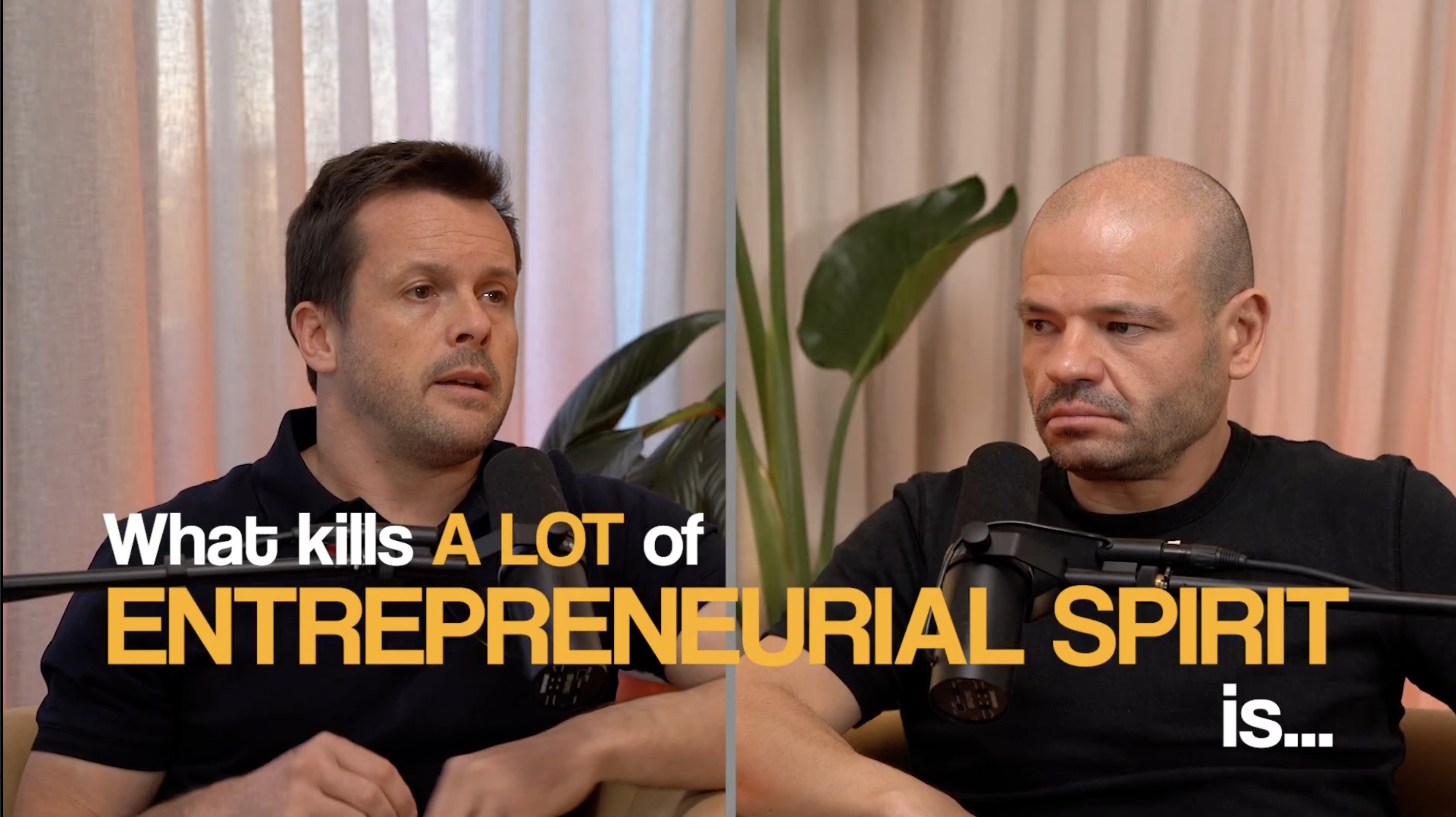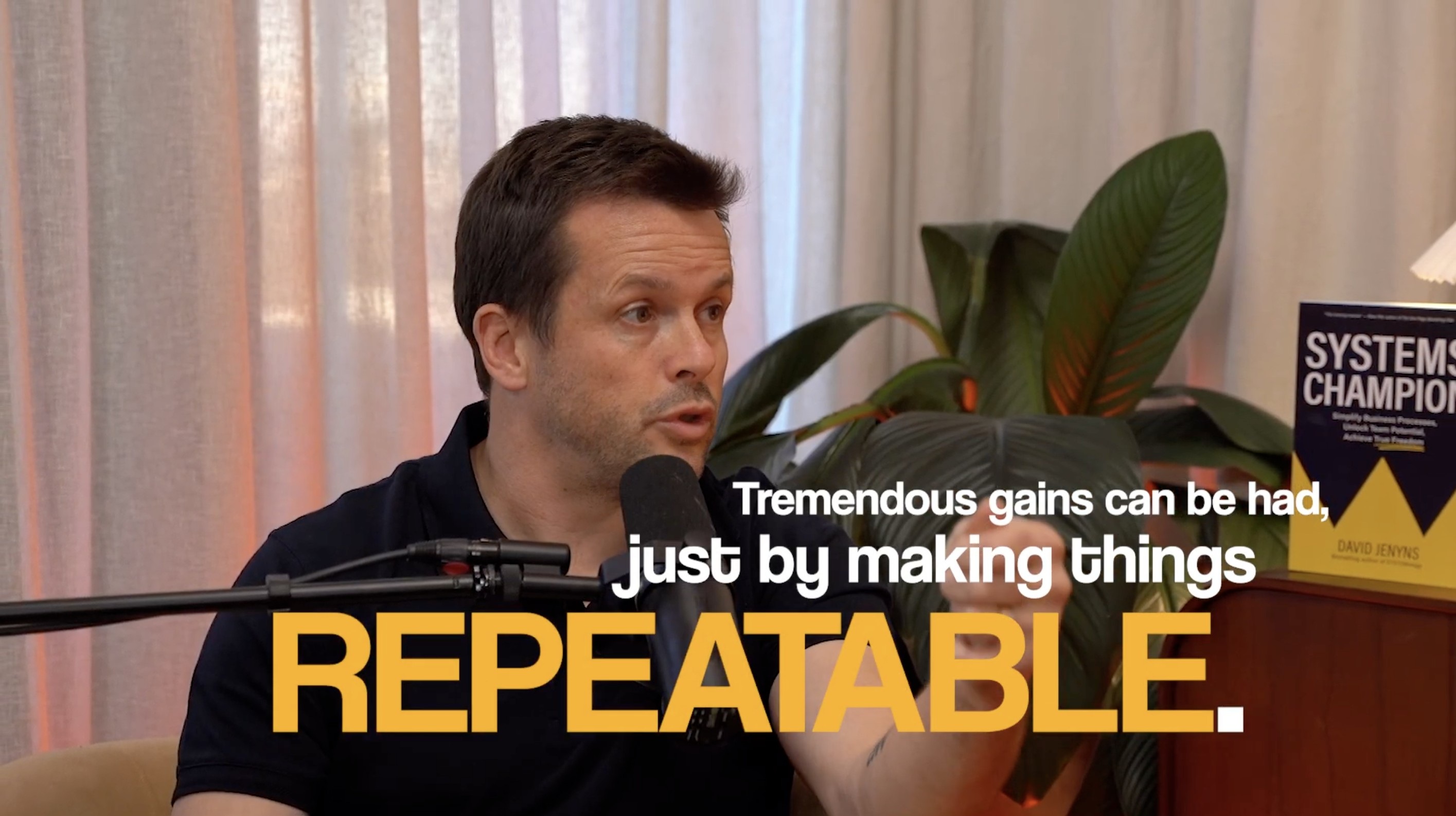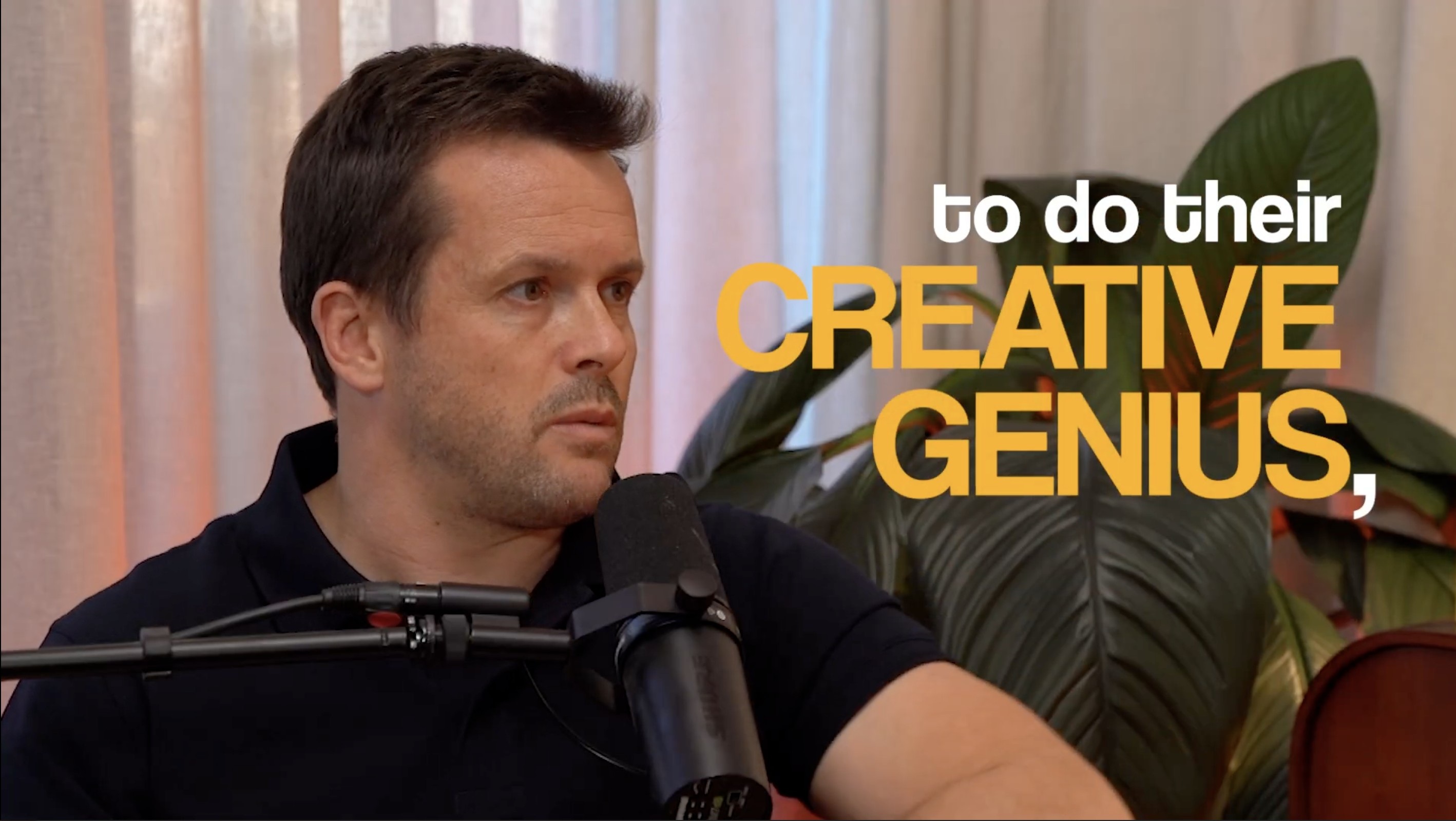If you’re honest, your business probably has some systems… somewhere. Maybe a few standard operating procedures (SOPs) in a Google Drive. Maybe a training video or two.
When was the last time you looked at them, let alone updated one?
The truth is that systems don’t run themselves.
David Jenyns, my guest on the Lean Marketing Podcast, explained it perfectly: ”You don’t just need systems. You need a systems champion. Someone who takes responsibility for creating, maintaining, and driving a culture of process in your business.”
Without that, even the best-written procedures gather dust.
What Exactly Is a Systems Champion?
A systems champion isn’t just an “operations person.” They’re the guardian of your business’s playbook—the one ensuring that:
They protect your business from chaos.
If you’re the business owner, you can’t be this person. You’re too close to the day-to-day fires. Your focus should be on vision, growth, and strategic decisions for your business.
You need someone else to own the role of systems champion.
In my blog Business Systems: How To Create A High-Growth Business Without Burning Out, I break down why documented processes are the key to sustainable growth.
But documentation alone doesn’t create transformation.
It creates a library that may or may not be collecting dust.
The systems champion turns “nice ideas” into “how we do things here.”
When that happens, you can:
One thing I’ve learned from leaders like Jack Delosa is that founders who scale think differently about systems.
They don’t just see them as “operations.” They see them as growth multipliers.
Jack’s approach mirrors what David teaches. Get the right person to own the operational playbook so you can double down on strategy, sales, and innovation.
Sounds nice. So how do you do it?
Identify someone detail-oriented, respected by the team, and good at following through. Then give them the authority and tools to own the role.

Systems, much like marketing, aren’t a once-and-done process. They evolve as you and your team discover better ways of doing things.
The most common pitfall for founders is that they outline only a few key processes. Perhaps it’s your preferred way of doing things.
Your team follows them for a couple of weeks. However, if there isn’t someone to champion your process, people will soon revert to old habits.
Because let’s be honest, learning a new way of doing things isn’t always easy.
Sound familiar?
This is why, in Stop Guessing, Start Systemizing, I stress that building the process is only the first step. The real magic happens when someone takes ownership of keeping it running.
They help your team develop a new habit.
They stress the importance of following the system.
Maybe it’s to identify weaknesses in your sales process or uncover churn issues.
Numbers tell a story, and when you’re actively implementing and monitoring a system, you have a far greater chance of improving it.

Don’t just systematize operations; systematize everything, especially marketing.
Those who succeed in business do so because they understand the importance of consistent marketing.
Just think about a favorite podcast. You know exactly when the next episode will air, who the guest will be, and what the topic of conversation will be.
But, should they stop producing content, you’d ultimately look elsewhere for your weekly dose of entertainment.
And with time, you’d forget about that much-loved podcast.
A systems champion ensures that your campaigns run like clockwork, your messaging stays consistent, and leads get followed up on automatically.
This helps deliver a world-class experience, build brand evangelists, and reduce churn.
No more “random acts of marketing.”
And when marketing is systemized, it becomes a predictable growth engine instead of a frantic, last-minute scramble.

The biggest benefit of having a systems champion? Peace of mind.
When you know the business can run without you:
You finally own the business instead of the business owning you. This is an incredible place to be in.
Imagine going on vacation without your computer? Finally being able to switch off. Not only will you thank yourself, but your family will be so much happier.
Not to forget that investors find this extremely attractive.
Building reliable systems allowed me to sell my businesses for far more than I would have been offered had they not existed. It made me a very wealthy man. It also provided me with the funds I needed to bootstrap my next business idea.
So stop firefighting and start systemizing.
1. Can a small business afford a systems champion?
Yes. It doesn’t need to be a full-time role initially. You can assign it to a trusted team member or even bring in a part-time consultant to set things up. Ideally, you want someone who likes processes. They’re pedantic about doing things the right way, and finding ways of making things more efficient.
2. How is a systems champion different from an operations manager?
An operations manager oversees daily work; a systems champion ensures the way that work gets done is documented, followed, and improved.
3. Can I be the systems champion myself?
If you’re the founder, you shouldn’t be. Your focus should be on growth, vision, and strategic decisions—not chasing process compliance.
4. What’s the first step to finding one?
Identify someone detail-oriented, respected by the team, and good at following through. Then give them the authority and tools to own the role.
5. How soon will I see results?
With the right person in place, you can see improvements in efficiency and consistency within weeks—and compounding benefits over months.
Systems are the backbone of scale. But without improvement specialists, they’re just wishful thinking.
So, decide today—who will be your systems champion? Give them the authority to enforce, improve, and protect the processes that keep your business running.
Want the full playbook?
Listen to my conversation with David Jenyns on the Lean Marketing Podcast, where we break down exactly how to build a culture of systems and why the systems champion is your secret weapon for growth.
You'll get new articles delivered straight to your inbox, plus special subscriber-only content such as podcasts, videos and live training events.


Get free weekly emails that make you smarter at marketing and help you grow your business